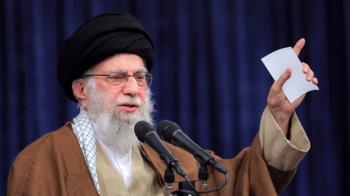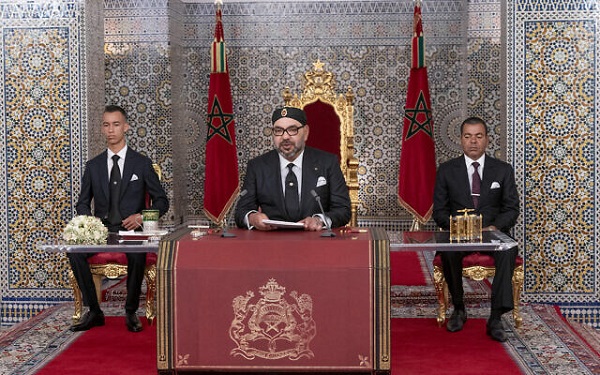Alwaght- The US Department of State said that an Israeli delegation attended a security conference held on Wednesday and Thursday in Marrakesh, Morocco.
Russian broadcaster RT news reported, quoting a US State Department official, the Israeli regime participated in an anti-terrorism conference held last week in the Moroccan capital and attended by tens of countries.
The Times of Israel website reported that the Tel Aviv delegation had an active role at the meeting.
“An Israeli official this week actively participated in an anti-terrorism conference in Morocco,” the news website reported, adding: “the name of the Israeli official who attended the so-called Warsaw Process Counterterrorism and Illicit Finance working group in Marrakech on Wednesday and Thursday cannot currently be published, due to security reasons.”
Some Israeli sources familiar with the issue, referring to the Israeli efforts to normalize diplomatic relations with the Arab states, revealed the talks between the US and Morocco government based on which the American government will recognize the Moroccan sovereignty over the disputed Western Sahara region in return for the Moroccan government’s steps towards a détente with Tel Aviv.
Israeli regime: Part of the solution or origin of problems?
The Israeli actions in West Asia and North Africa regions since its foundation in 1948 have been destabilizing and meant to undermine the security of the regional states.
Caught in an ideological and geopolitical impasse, the Israeli regime designed its doctrine on creating home conflicts or inter-state conflicts to reach its own security goals.
So, it is widely understood that as long as Tel Aviv finds itself in such an impasse, it will take actions compliant with its destabilizing actions.
Based on what was said the Israeli regime due to long-term isolation not only cannot partner with regional states to provide security in West Asia and North Africa but also its strategy dictates moving on the opposite side.
Tel Aviv’s security compromising policy is observable in the region. It, for example, supports terrorist groups in Iraq and Syria and helps pro-separation movements and efforts in regional countries. It also over years fueled the Sudan crisis, leading to the secession of the southern part of the African country. All these policies are accordant with the Israeli essential identity. In fact, such actions are highly predictable in the Israeli policy and stabilizing policy has no place in Tel Aviv strategy.
Diplomatic normalization: restoring regional stability or escalating the tensions?
Security and economic weakness of some Arab countries and their efforts to attract the US support to solve their problems have always encouraged their leaders to bow to the American precondition of normalizing with the Israeli regime. On the other side, Tel Aviv plays as a broker of the Arab-American relationship and the attractor of the Washington security and economic backing to the weak Arab countries, something granting the Israeli leaders the power to step in a US-determined equation with the Arab governments.
Some Arab countries, meanwhile, try to seize such an opportunity to draw the US support in return for normalizing their ties with Tel Aviv.
Now the question is that can Tel Aviv play as a recognized security partner to the Arab world with benefits to the regional security once the security problems between the Arab world and the Israelis are solved?
As an answer, it must be said that even if the two sides enter a thaw and even if some of the Arab regimes compromise the Palestinian cause in return to improve relations with Tel Aviv, the Israeli regime will be de-isolated but what remains intact is the Israeli ideological nature, which is the main element driving the Israeli security policies.
The Israeli regime had a special definition of its identity and takes specific steps towards the ideals of the so-called Jewish state. This causes non-compliance and even conflict between the Israeli ideals and goals and the regional states’ interests. Very importantly, such conflict of interests prevents any constructive role by Israeli regime in regional security. What Tel Aviv achieves from normalization is a more comfortable movement towards its destabilizing policy in the region at the expense of the whole region.
In the long run, the Israeli escalatory security policies will saddle the Arab counties that enter normalization with even worse security challenges.
Due to its ideological nature, which runs counter to the Arab and Islamic interests, the Israeli regime cannot play as a pro-stability actor in the region. Rather, its interests lie in instability and fueling the confrontation among regional rivals especially through the threadbare Iranophobia policy.
Therefore, with this reality taken into account, normalization with Tel Aviv of some Arab states not only will not bring regional security and calm but also will allow Tel Aviv leaders to pursue their perilous policies with hands wider open, something rendering regional tensions more escalated.



























